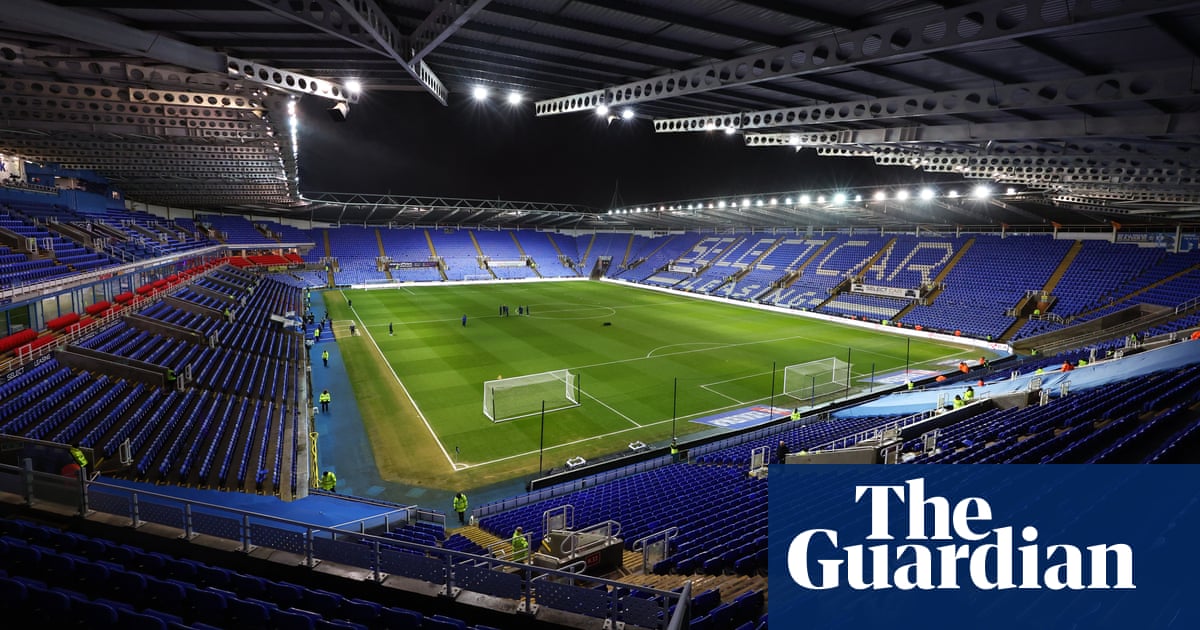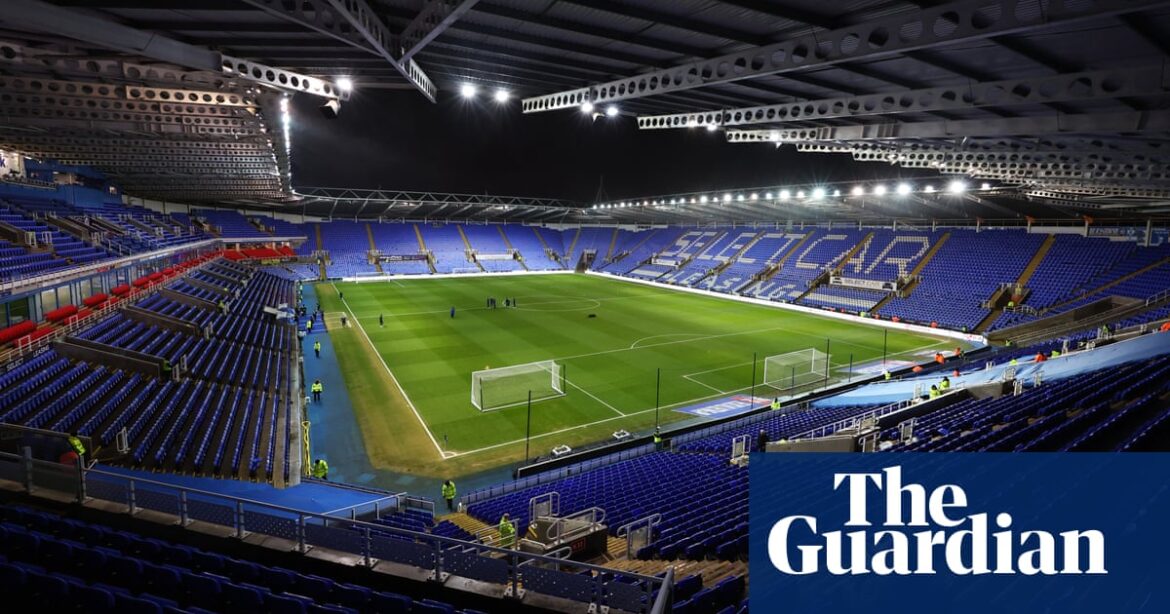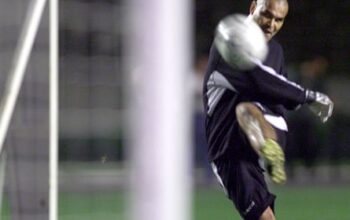
The Reading owner Dai Yongge’s repeated attempts to sell the club are being jeopardised by his failure to repay previously undisclosed debts of more than £55m to a state-backed Chinese bank, according to documents seen by the Guardian.
A loan from Haitong International Securities caused the collapse of a £30m takeover by Rob Couhig last month, with documents showing the investment bank has the right to take ownership of Reading’s stadium if it is sold without the debt being repaid.
Reading announced on Monday they had entered “exclusive negotiations” with another buyer but the stadium issue remains unresolved and ownership will pass to Haitong if the loan remains outstanding after the club are sold, according to the documents. The English Football League has not been told the identity of the new Reading bidder, with sources sceptical a sale will take place.
Haitong is merging with another Chinese bank, Guotai Junan Securities, to create the country’s biggest bank, with assets of about £175bn. Haitong is understood to have effectively blocked last month’s sale by obtaining a stop notice in the British Virgin Islands (BVIs), where the stadium is registered for tax reasons, which prevented it being transferred to Couhig’s company, Redwood Holdings.
Couhig was not informed until late in the process about Yongge’s debt to Haitong, which is secured against the club’s stadium. The EFL was also not aware of the loan despite being asked to approve the sale.
The possibility of an EFL stadium falling into the ownership of government-backed Chinese bank could have political ramifications at a time when the governance of football is being heavily scrutinised in Westminster. The Football Governance Bill setting up an independent regulator is due to be introduced to parliament this year.
Yongge has been under huge pressure from Reading fans to sell for more than a year owing to his disastrous stewardship. “It’s not that Dai won’t sell, but he can’t sell,” a source with knowledge of the process said. “He put the stadium up as collateral against a £50m loan, and the bank want their money back. And no one is going to buy Reading without the stadium. The loan was due to be repaid two years ago and Haitong have been going through the Hong Kong courts since then, but with Dai close to selling they are pushing harder now. Given their links to the Chinese government they should not be underestimated.”
Haitong is understood to have provided a loan to Prestige Fortune Asia, which lists Yongge as its sole shareholder, of about £44m in 2018, a year after he paid £24.5m for the then Championship club. The loan matured in July 2022 with repayments due immediately, but not one has been made and with interest payments added the debt has increased to more than £55m.
Documents seen by the Guardian suggest negotiations between the parties over repayments began in January 2023, with Yongge proposing using assets including the stadium and surrounding land to repay the debt.
The documents show that Haitong took the matter to the Hong Kong courts. Last November it received an undated letter of undertaking signed by Yongge stating that any proceeds from the sale of Reading, including directly and indirectly connected holding companies, should be first used for the partial repayment of a debt which then stood at £45m.
after newsletter promotion
With Yongge engaged in sale talks Haitong applied for a stop notice regarding the stadium, which was granted by the BVIs’ court office last February. In July Haitong’s lawyers received notice that Yongge was planning to transfer ownership of the stadium to Couhig’s company, Redwood Stadium Limited.
This was stopped by a ruling in August from the high court of justice in the BVIs, which ruled that Prestige Fortune Asia be prohibited from transferring, selling or taking interest payments or dividends related to the stadium until the conclusion of the Hong Kong court proceedings.
The EFL, Reading and Haitong International declined to comment.
Source: theguardian.com



